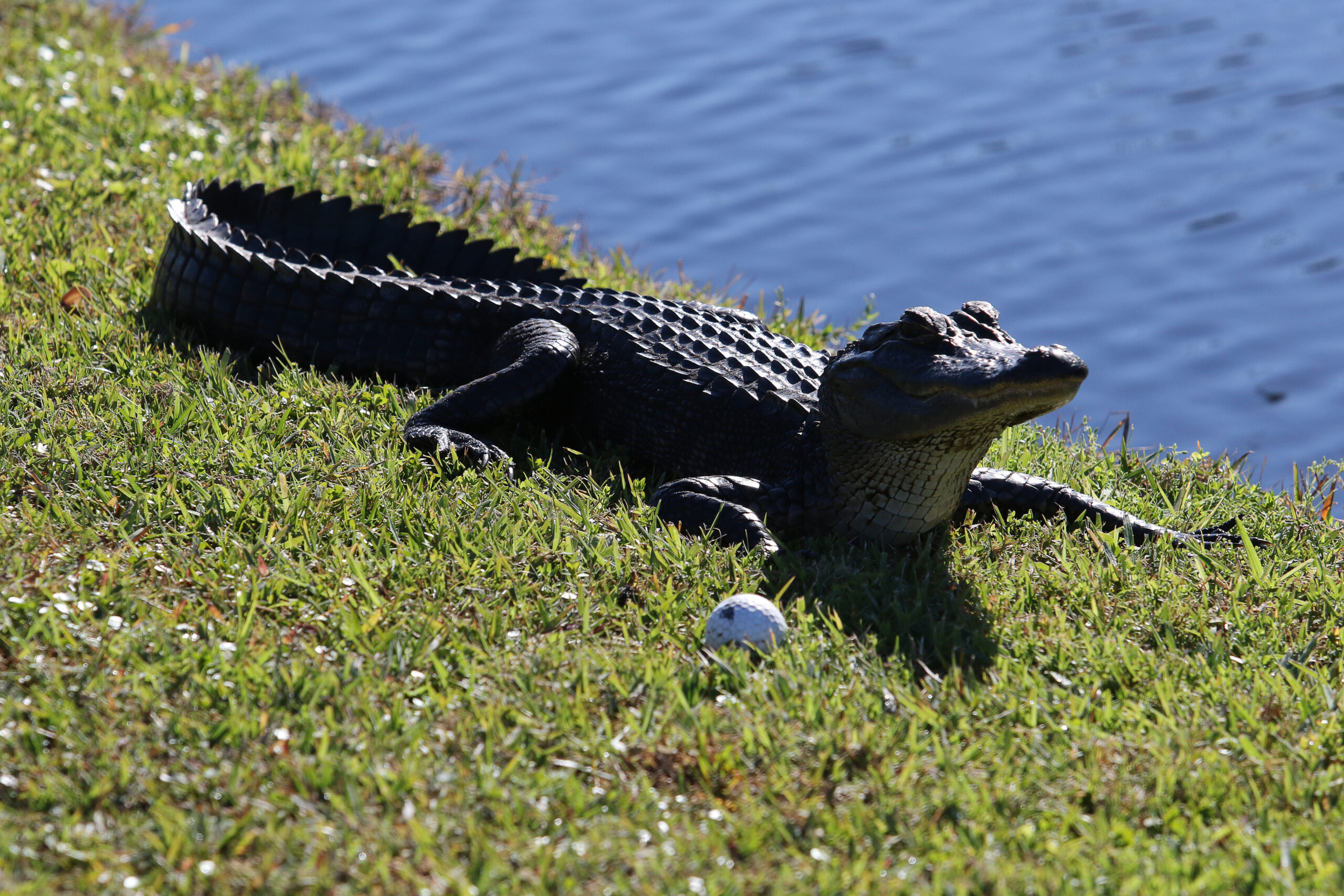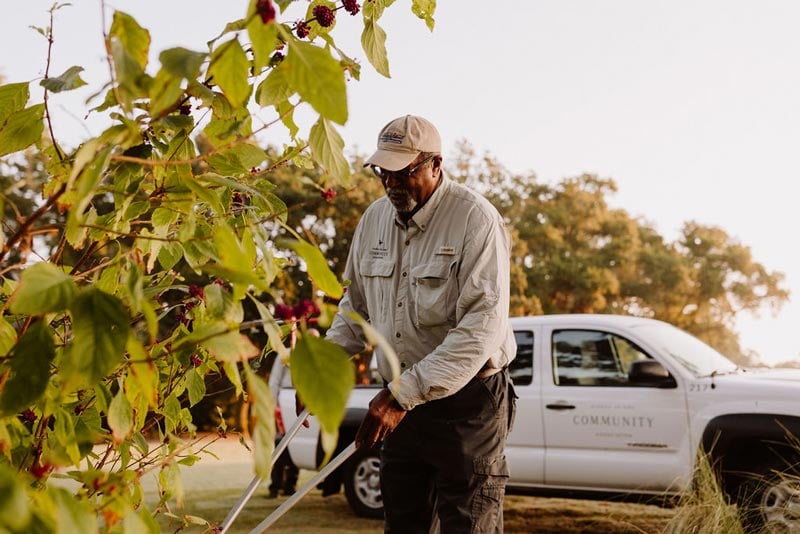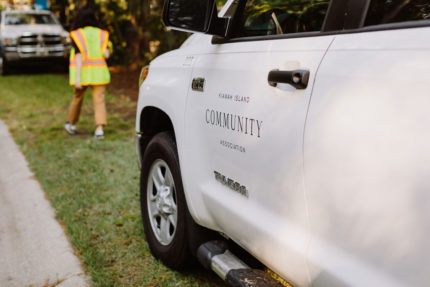Apr
09
2024

From The Blog
Living Safely with Kiawah’s Prehistoric Predator
IF YOU WITNESS FEEDING OR HARASSING AN ALLIGATOR, OR CONCERNING BEHAVIOR, CONTACT:
- The Town of Kiawah Island at 843-768-9166 during business hours
- KICA Security any time at 843-768-5566
- Please share the location of the location and size of the alligator, as well as the time, date, and general details of the encounter.
Imagine the world 150 million years ago, and you will probably be thinking of dinosaurs roaming the Earth. Almost all of these prehistoric creatures are now extinct, but one of them walks the Earth with us today: the alligator.
American alligators haven’t changed all that much from their ancient ancestors. Alligators are ectothermic: they depend on an outside source for their body heat. As a result, an alligator’s activity level varies with the outside temperature. The spring through late fall are when alligators are the most active, as their bodies are warm enough for more activity. People often see them lying in sunny spots, completely motionless, sometimes for hours. This sun-basking can make people assume they are lazy or slow but they are neither.
Alligators are efficient predators, and these carnivores prey on any animal that is available. According to the South Carolina Department of Natural Resources (SC DNR) alligators start out eating smaller prey such as crustaceans, snails, and small mammals and graduate to larger prey as they grow and age. Adults eat fish, mammals, turtles, birds, and other alligators. Due to strength and speed, alligators can attack pets that are near pond edges, interpreting them as prey.
Alligators generally begin courting in April, followed by mating in late May and early June. During this time, you may hear the males bellowing in ponds, signaling to the females that they are ready to mate. Female alligators will lay eggs and nest in June and July. All of these behaviors can lead to increased alligator activity, such as crossing roads and leisure trails. While it’s always important to put distance between you and an alligator, please be especially mindful in April through July.
The American alligator is a protected species and, in South Carolina, it is illegal to harass, feed or relocate an alligator. Limited hunting and euthanasia of nuisance individuals is permitted by SCDNR through a tagging system.
Kiawah and Alligators
Living with alligators requires vigilant awareness, respect and caution. Kiawah was intentionally developed to integrate closely with our incredible natural surroundings and wildlife, and with that, precautions must be taken. Alligators are naturally fearful of humans and will retreat in close proximity, unless they have been fed or harassed. Alligator attacks are rare, with only five known fatalities ever reported in South Carolina, but these animals must be treated with caution. Never approach an alligator, whether on a path or on a golf course. Keep children and pets away from pond edges.
The town and community association share the responsibilities of alligator management in a coordinated effort. Over the last decade, Kiawah’s alligator population has remained relatively stable, which indicates a healthy ecosystem with balanced resources. Kiawah averages about one mature alligator (at least six feet in length) for every three acres of pond surface area.
To notify members and guests about the possibility of an alligator in bodies of water, island biologists use a custom map overlay to see the location of alligator signage on the island and anticipate areas where additional signage might be beneficial. There are currently a total of 155 alligator safety signs that notify passers-by of alligators in the area and read, “Warning: Alligators. It is illegal to feed or harass alligators. Report violations to KICA Security at 843-768-5566.”
Each of Kiawah’s entities plays an important role in alligator awareness on the island, and works with its audience to promote safety. KICA’s property owner guest pass includes a printed warning on the back, and an alligator safety flyer is distributed by rental agents. The Kiawah Conservancy contributes to research and puts out a wealth of information on these animals The Kiawah Island Golf Resort and the Kiawah Island Club promote safety to golfers with information and signage on courses warning them to stay clear.
Provide Alligator Safety Education
Alligator safety is a community commitment and it requires community member participation. Remind your guests and neighbors to respect the alligators. If you rent your property, provide education to your renters. The safety of this community is our highest priority.
Alligator Safety Flyer – Printable
Town of Kiawah Island’s Alligator Awareness Information
Report Concerning Alligators
If you are concerned about the behavior of an alligator, contact the town at 843-768-9166 during business hours or KICA security for after-hours at 843-768-5566. Please share the location of the alligator, the size of the alligator, the date, time and general details of the encounter.
Every alligator reported by members undergoes an evaluation with an island biologist. The biologists use their experience to run several tests. If it demonstrates that it has lost its fear of humans, the alligator is euthanized.

